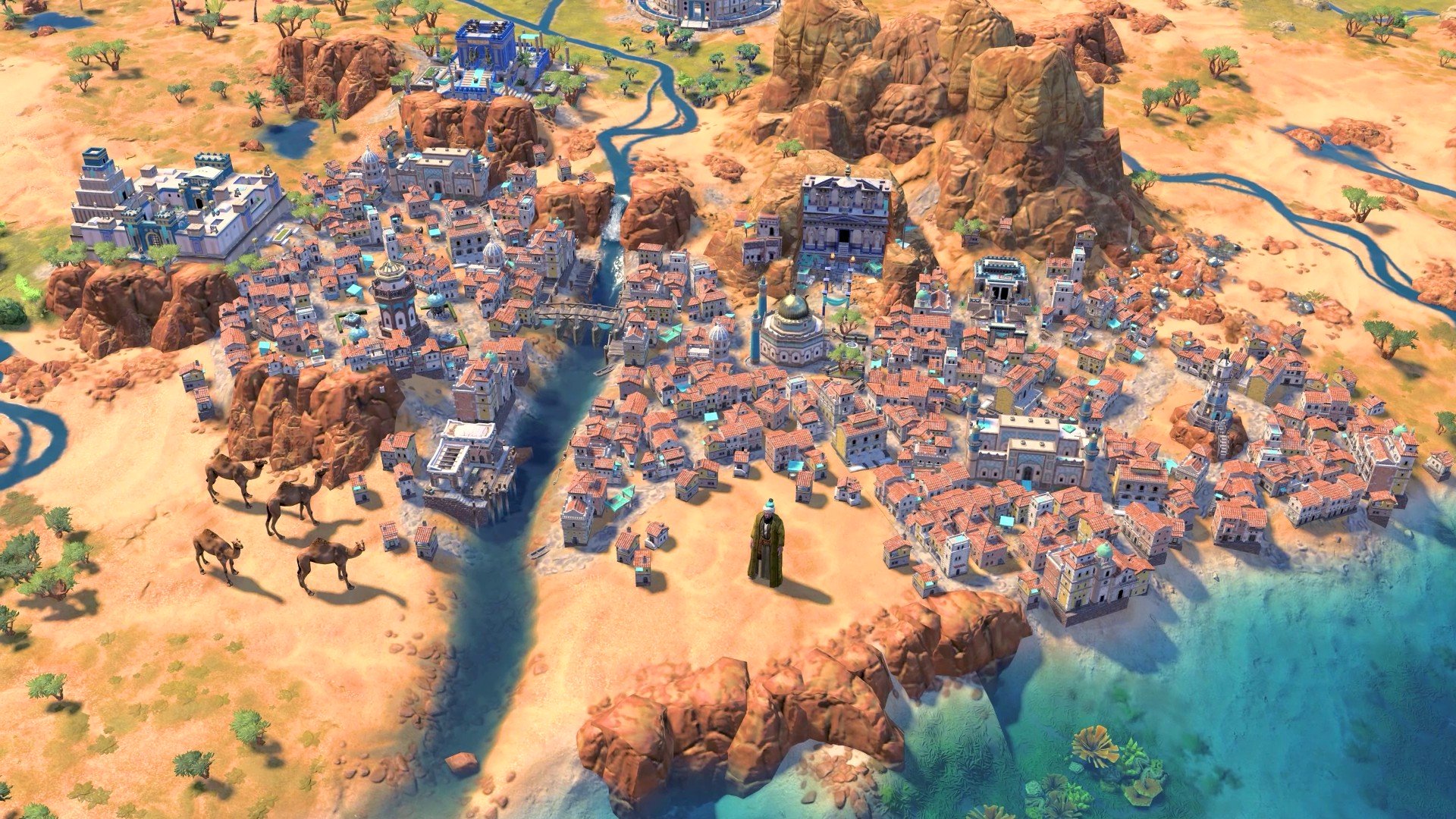I felt it the most keenly when I played Civilization Revolution, this ongoing problem with Firaxis’s 4X icon – and other games like it – whereby interactions with other nations are too limited. In the Civilization games of old, including Civ 6, diplomacy is often a case of just trading a few resources for time-limited favors. It doesn’t feel grand. But in Civilization 7, that’s all going to change. Firaxis is totally revamping how you negotiate with your rivals. Alongside the big new combat ideas that were unveiled recently, Civilization 7 feels like a shakeup of the series’ formula.
The Civilization 7 release date is getting closer and closer, and rather than a new, slightly amended and expanded iteration of the 4X game, Civ 7 looks like a total reinvention. Ages have been reworked. We reported previously on how turn and tile-based combat is changing, too. Now, Firaxis explains the new ‘Influence’ system and how it makes the hitherto truncated act of diplomacy more spectacular.
In Civ 7, the idea is that players will make diplomatic decisions at the macro level. Rather than exchanging, for example, X amount of gold for Y turns of peace, you use the new Influence resource to steer relations in more lateral directions. You accumulate Influence every turn. Once you have enough, you can use it to initiate four different types of diplomatic action.
If you initiate an Endeavor, it means you offer a rival nation to join with you in a shared, mutually beneficial task. A simple example: you spend some Influence to convince another civilization to help you research a new technology more quickly. However, you can also use Influence for more punitive means. Placing a Sanction on a rival civ will decrease its military output.
Treaties are another option, and open the borders so you can freely move your units inside another civilization’s territory, and vice versa. Treaties also improve trade relations so you and your diplomatic partner can earn more from one another, and they last for several turns. Finally, you can spend influence to perform Espionage. This is a high-risk, high-reward strategy. If successful, you can use Espionage to steal a technology from one of your opponents. If you fail, it will damage your diplomatic relationship with that nation and also reduce your per-turn Influence gain for a limited period.
So, those are the actions you can instigate. But what if another civilization engages in diplomacy with you? Again, you navigate the system using Influence. If a rival suggests something and you choose to ‘support’ it, their proposal will go through and you will have to spend Influence. Supporting something will have some kind of tangible benefit to you, like more gold or extra production, or maybe some new units.
Another option is to ‘accept’ a diplomatic proposition. In this case, you’ll maintain cordial relations with the rival nation, but they will benefit more from whatever they’ve offered – unlike ‘supporting,’ the split won’t be even. However, ‘accepting’ doesn’t cost Influence. Finally, you can spend Influence to ‘reject’ a proposition. In this case, whatever Influence the rival civ used to make the proposal will be refunded to them.

In terms of earning Influence, certain buildings, attributes, and even leaders will generate it at an increased rate. You can also construct wonders and instantiate certain internal policies that will yield Influence for you more quickly. On the contrary, if you make a show of yourself on the world stage, for example by destroying a neutral or peaceful settlement, how much Influence you gain each turn will go down.
Depending on how you treat your neighboring leaders, you can forge five different types of diplomatic relationship: Helpful, Friendly, Neutral, Unfriendly, and Hostile. Some actions are dependent on the quality of your relationship. If you want to strike a military alliance with someone, for example, their attitude towards you needs to be Helpful. And speaking of war…
Civilization 7 introduces two new systems to blend diplomacy with warfare: War Support and War Weariness. The greater amount of War Support you have, the more buffs and stat increases your units receive. War Weariness works in reverse – if your people don’t have the attitude for conflict, it’s reflected in your army’s stats.

Let’s say you’re Hostile with another nation and you trigger a war. That’s fine. You won’t be penalized either way. But if you launch a surprise war on a civilization that’s not Hostile towards you, that nation will get a boost in their own War Support, and you might be hit with more Weariness.
You can also lend your War Support to other nations, essentially becoming their military ally without entering into combat. Similarly, you can use your Influence to help build the armies of smaller, independent nations. Spend enough Influence, and you can incorporate these nations as city states. Alternatively, leave them be, but use Influence to compel them to attack your rivals on your behalf.
These are big changes to one of Civilization’s core systems. They sound very promising, and like they’ll make diplomacy feel a lot more involved and impactful. We’ll get to try them out once Civilization 7 arrives in February.
In the meantime, enjoy some of the other best strategy games, or maybe the best grand strategy games on PC.
You can also follow us on Google News for daily PC games news, reviews, and guides, or join our community Discord to stay in the know.

